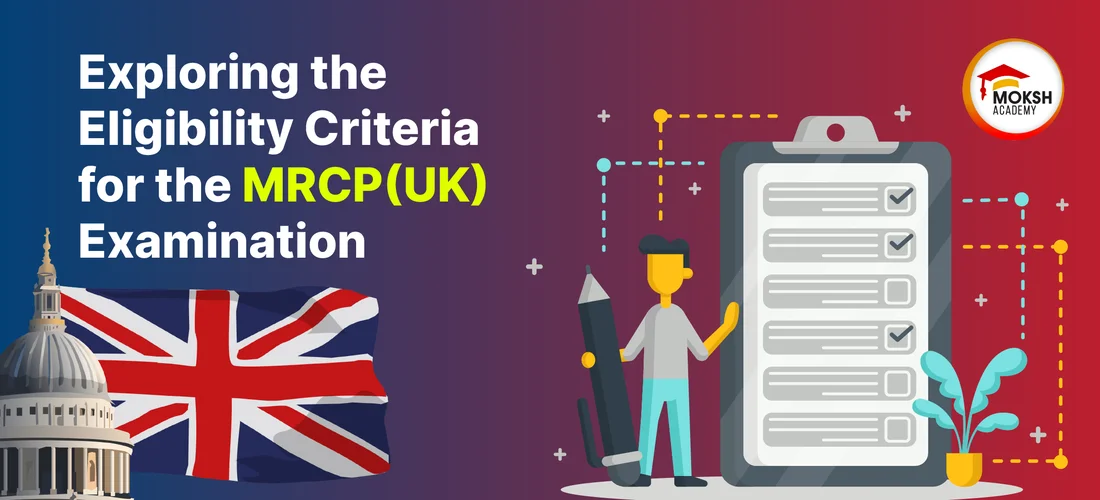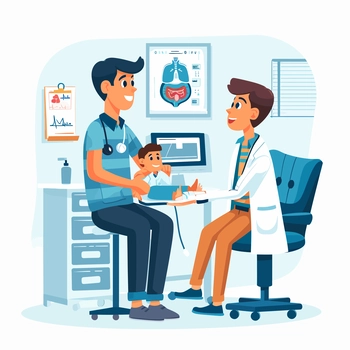
Introduction
Have you ever wondered about taking your medical career to new heights with a prestigious MRCP qualification? Standing for Membership in the Royal Colleges of Physicians of the United Kingdom, the MRCP examination is a highly respected benchmark used to assess physicians' abilities across the globe. Whether you're an aspiring internist or a seasoned doctor looking to further your expertise, understanding the eligibility criteria is your first essential step. In this blog, we will guide you through the qualifications needed to sit for this esteemed examination, ensuring you have all the information at your fingertips to start your journey.
Overview of MRCP Examination Eligibility Criteria
Navigating the eligibility criteria for the Membership of the Royal Colleges of Physicians of the United Kingdom (MRCP UK) examination is crucial for physicians aspiring to enhance their credentials. The criteria are structured to assess whether candidates have the necessary medical knowledge and skills to proceed with further specialized training.

Basic Qualifications
To sit for the MRCP exams, candidates must initially ensure they possess the basic medical qualifications. These include holding a recognized medical degree and having completed a certain period of postgraduate training, typically including an internship. It's important to confirm that your specific qualifications are accepted by examining if your medical school is listed in the World Directory of Medical Schools.
Registration with the General Medical Council (GMC)
An essential requirement for all candidates taking the MRCP examination is registration with the General Medical Council (GMC), either provisionally or fully. This not only legitimizes a candidate’s professional standing in the UK but also ensures they adhere to the high standards expected of medical practitioners in the country.
Educational Requirements for the MRCP Examination
In addition to professional registrations and qualifications, specific educational requirements must be met.
Medical Degree
Candidates must hold a primary medical degree awarded by a recognized institution. The validity and recognition of the medical degree are often verified through the World Directory of Medical Schools, ensuring that the qualifications meet international standards.
Foundation Competence
Candidates are required to have completed a minimum of 12 months of postgraduate clinical work in a recognized training position. This period, often completed during foundation year training, is vital as it ensures that candidates have acquired basic medical competencies.
Enquiry Now

Medical Practice Experience
Beyond foundational competencies, candidates seeking to undertake the MRCP exam should have relevant medical practice experience. Typically, this experience should include varied roles across different specialities, ensuring a well-rounded skill set. Practical experience in dealing with diverse medical scenarios is crucial, as the MRCP examination assesses both theoretical knowledge and practical skills. This experience helps prepare candidates for the wide-ranging clinical assessments they will face.
MRCP Examination Parts and Their Eligibility Criteria
MRCP Part 1
Overview
The MRCP Part 1 is the first among the three-step examination for medical licensure under the MRCP credentials. Aspiring candidates must hold a medical degree from a recognized university and have a minimum of twelve months' postgraduate experience in medical employment. This ensures that examinees have acquired a basic yet comprehensive understanding of the clinical science necessary to pursue advanced knowledge in medicine.
MRCP Part 2 Written
Overview
To progress to the MRCP Part 2 Written examination, candidates must have successfully passed MRCP Part 1. Beyond the completion of Part 1, there are no additional prerequisites for Part 2. This segment of the examination focuses on diagnosing and managing clinical issues in specialities like cardiology, respiratory medicine, and more. The exam format is written and intended to assess the candidate's ability to apply clinical understanding in practical scenarios.
MRCP PACES
Overview
The MRCP Part 2 Clinical Examination, or MRCP PACES, standing for Practical Assessment of Clinical Examination Skills, is available to those who have cleared the Part 2 Written exam. This stage is designed to test skills including communication, history taking, and physical examination across various medical specialities. Candidates need to demonstrate a smooth, approachable, and professional manner in handling patients, which is crucial for every practising physician.
Enquiry Now
Additional Considerations for MRCP Examination Eligibility
English Language Proficiency
For MRCP aspirants, English proficiency is crucial. Candidates are expected to be fluent in English as the exams are conducted entirely in English. This requirement ensures that all participants can effectively understand the examination material, communicate with patients, and interact with examiner feedback.
Exceptions and Special Cases
Special provisions are made for candidates with disabilities or those who require specific adjustments to sit the examination. These are considered on a case-by-case basis. Additionally, circumstances like maternity, paternity, illness, or other significant life events can also be accommodated with prior approval and appropriate documentation. poons are considered on a case-by-case basis. Additionally, your personal or family circumstances like maternity, paternity, or severe illnesses, if impacting your ability to take the exam, may also warrant special considerations. However, these too require an application with appropriate supporting documentation.
Enquiry Now
Conclusion
Embarking on the journey to pass the MRCP examination is a significant commitment that requires thorough preparation, a strong grasp of clinical medicine, and a clear understanding of the eligibility requirements. Whether you're starting with MRCP Part 1, gearing up for MRCP Part 2, or preparing for the MRCP PACES, ensure you meet all the necessary qualifications to register. Studying for and passing the MRCP exam can be a challenging but incredibly rewarding experience that opens many doors in the medical profession. Good luck on your journey to achieving this prestigious qualification!



